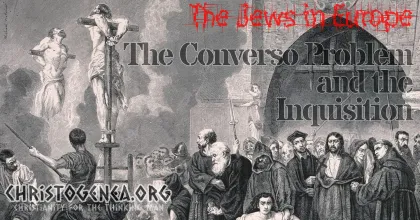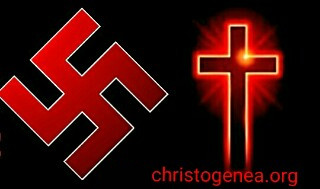The Saxon Messenger - Edition No. 42
Get your copy of the latest issue of The Saxon Messenger, an online PDF magazine and a project of Christogenea.
This issue of the Saxon Messenger features The Christian Identity Objective, Christian Expectations, Refugees? No! Rape-fugees, Addressing Feminism Part 1, and Lobster Lives Matter To Blind & Hypocritical Swedes, all by William Finck; White Genocide: The Mass Rape & Murder of the European People and The Hidden Slitherers of Mind Manipulation, both edited from other sources with comments by Lasha Darkmoon; 20M Invaders Waiting: Macedonia and Will South African Farmers Move to Georgia en masse? both from The New Observer Online; The Riddle of Rotherham: “Mad Ash,” White Trash and the Hostile Elite by Tobias Langdon and Britain’s Jewish Traitors by Francis Carr Begbie, both from The Occidental Observer; Moslem Police and Politicians were Complicit in the Sex Abuse in Rotherham from the blog Diversity Macht Frei; Top German Journalist Admits Live On Air that the National News Agenda is Set By Government; Extracts from What World Famous Men said about Jews by Dr E R Fields Statins Red Alert by Mike Adams and Another Nail in the Coffin for Statins by Tony Isaacs both from Natural News, and more...








 This program is going to be titled The Kingdom of Heaven, or the Elections of Men? We are going to begin by presenting a short sermon by Bertrand Comparet, and making some remarks in reference to it. But then we shall discuss the currently ongoing election season in the United States, and how Christians should look at both it and at the possibilities. We shall have brother Ryan and, perhaps a little later, some of our other friends and brethren with us for that discussion.
This program is going to be titled The Kingdom of Heaven, or the Elections of Men? We are going to begin by presenting a short sermon by Bertrand Comparet, and making some remarks in reference to it. But then we shall discuss the currently ongoing election season in the United States, and how Christians should look at both it and at the possibilities. We shall have brother Ryan and, perhaps a little later, some of our other friends and brethren with us for that discussion.




 Please click here for our mailing list sign-up page.
Please click here for our mailing list sign-up page.








Recent comments